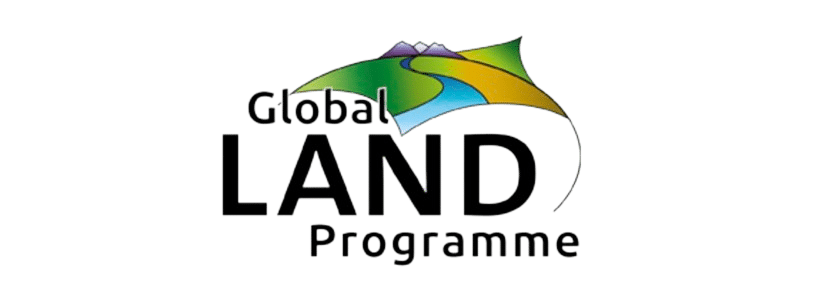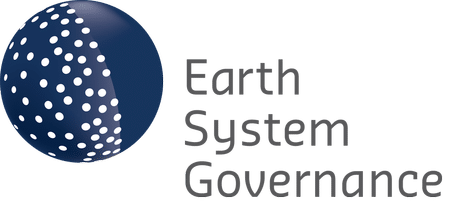The Pathways Autumn School brings together early career researchers working in sustainability science to reflect on current research practices and learn to better engage inter- and transdisciplinary collaborations to contribute to deep societal transformations.
The 4th edition of the Pathways Autumn School will be held from October 13–17, 2025, in Aussois, in the French Alps. Bringing together 50 young and senior researchers, the school will explore the theme: "Towards Sustainable and Just Futures: Concepts, Challenges, and Practices." Applications open on March 17 and close on May 12.
Humanity is facing multiple interlinked environmental, social, and political crises, including anthropogenic climate change, biodiversity loss, continued structural injustices, geopolitical threats, armed conflicts, and the rise of populism, all of them with devastating effects for the planet and human wellbeing. These crises stem from unsustainable relationships with nature and dominant economic and political systems deeply rooted in power imbalances and inequalities. Attempting to resolve these complex sustainability challenges requires transformative changes that are ‘fundamental, system-wide shifts in views, structures and practices’ (IPBES, 2025). To inform and contribute to such fundamental societal transformations, sustainability science must embark on its own transformative journey in which scientists reflect and deliberate on the role of science for a better future. It requires us to re-examine and transform our own role and practices in the generation of actionable knowledge.
The Pathways Autumn School creates a learning space for early-career researchers in sustainability science, as a space of connection among scientists from all disciplines who are working to understand sustainability challenges and actively contribute to societal transformations. The School allows participants to critically explore and learn both the what and the how of conducting transformative research. What are the main concepts and frameworks mobilized in sustainability science? What does it mean to design and develop research that advances the understanding of complex socio-ecological systems and actively contributes to their transformation? How can researchers adapt or respond to fast moving technological and geopolitical shifts, which challenge the role of experts in societies? Participants from across Europe engage with these questions, both personally and collectively through a shared living space and a 5-day programme consisting of interactive workshops, keynote sessions, outdoor activities and interdisciplinary exchange.
The 2025 School’s programme is built around three modules that explore some of the main concepts, practices, and challenges of conducting a transformative turn within sustainability science:
Module 1 – Towards a shared glossary for interdisciplinary work in sustainability science
Through keynote sessions, key concepts and frameworks in sustainability science will be introduced and discussed. In addition, all participants will contribute to the development of a glossary. Its purpose is not to offer definitive meanings as definitions should enhance precision and clarity, not lead to exclusion. Rather it invites critical reflection and constant interrogation of terms, concepts and frameworks mobilized by researchers from various research fields, as a way to bridge disciplines and facilitate interdisciplinary work.
Module 2 – Learning to engage with societal actors: a case study in the Alps
Transdisciplinary modes of research are an important practice in sustainability science. Transdisciplinarity allows for mutual learning between researchers and societal actors to address real-world problems. Participants will learn from a concrete transdisciplinary research project on adaptation to climate change in the Alps, through interactive sessions with the project team. By reflecting on the design and practical development of participatory projects, their objectives and impacts, as well as their ethical dimensions, participants will be enabled to integrate new practices into their future research portfolios.
Module 3 – Technological and geo-political dynamics: Key challenges for sustainability science
Sustainability science doesn’t exist in a vacuum; it is deeply influenced by various geopolitical and technological forces. Global power imbalances and colonial legacies hinder efforts to address socio-ecological crises in just ways. The rise in populist and authoritarian movements are often linked to climate skepticism and hostility toward scientists. Social media, increasingly powered by AI, is changing how scientific knowledge is developed and disseminated. Geoengineering options, as a response to climate change, put forward by techno-solutionnist discourses, have become increasingly pressing issues in the current geopolitical context. Through keynote and interactive sessions, participants will critically reflect on these dynamics, their links to socio-ecological crises, and how researchers can contribute to redirecting these trends toward more sustainable and equitable trajectories.
We are still composing this year’s panel, check last year’s speakers!

We invite doctoral researchers and researchers who finished their PhD in the last 10 years (excluding periods of parental leave) who are living and working in Europe to apply. Due to our desire to limit the carbon footprint of our work, we cannot accept applications from those outside of Europe.
We aim at assembling a group of early career researchers from across Europe with a variety of backgrounds in terms of disciplines, approaches, visions, themes, and research practices, who share the wish to reflect and act on how research can better contribute to societal transformations.
As a prerequisite for participation, applicants need to be pursuing research related to the Autumn School’s core themes and questions. Additionally, applicants are expected to have sufficient proficiency in English to be able to actively participate in the School.
Applications for the 2025 edition of the School have now closed.
Our 2025 programme is still being finalized. In the meantime, you can explore our 2024 programme below and find more details by clicking on it.
The Autumn School will take place in Aussois, a charming village on the doorstep of the Vanoise National Park (French Alps) in a resort owned by CNRS: the Centre Paul Langevin.
The closest railway station is Modane. To get to Modane, you can use the French and Italian high speed trains (4h from Paris, 1h30 from Torino).
We will organize local transport to pick you up at the TGV station of Modane and bring you back to the station on Friday after lunch (about 15 min by bus to reach the venue).
Participants can arrive between Sunday evening and Monday morning.
The 3rd edition of the Pathways Autumn School took place between the 25-29 November 2024 in Aussois in the French Alps. It gathered 53 participants, including 29 early career researchers, from all over Europe and across the natural and social sciences & humanities to share and reflect on the topic: « Transformative Research for a Just World and a Habitable Planet”
Click here to know more about the 2024 edition.



